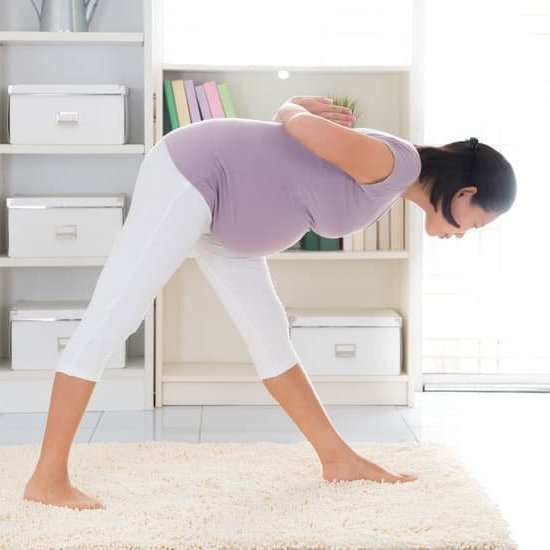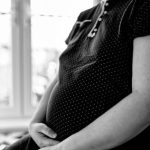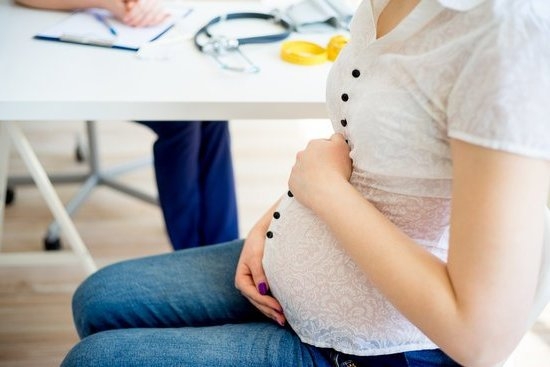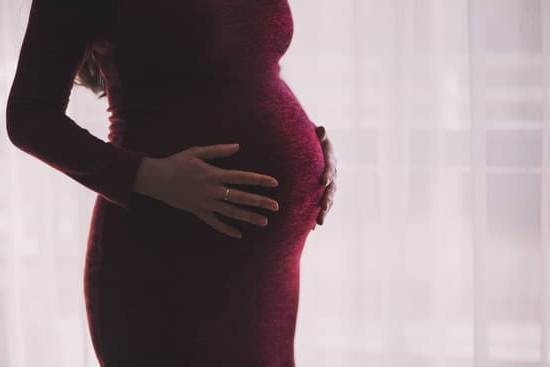Are you wondering how soon can you feel pregnancy symptoms? Many women look for early signs of pregnancy as they eagerly await the possibility of starting a family. Understanding the timeline of when these symptoms may occur can provide valuable insight into this exciting time.
In this article, we will explore the early signs of pregnancy and address the commonly asked question: How soon can you feel pregnancy symptoms? By delving into the menstrual cycle, the first week after conception, and potential symptoms, we aim to provide valuable information on this topic.
Starting with an understanding of the menstrual cycle and its relation to pregnancy symptoms, we will discuss the timing of ovulation and conception to highlight the potential for early signs to occur before a missed period. We will also delve into the potential early signs in the first week after conception, detailing how the body may begin to undergo changes during this crucial period.
Moving on to early pregnancy symptoms, we will identify common indicators such as nausea, breast tenderness, fatigue, mood swings, and food aversions. Additionally, we will explain the role that pregnancy hormones play in symptom development and explore the variability in when these symptoms may first be experienced. Furthermore, we will address potential confusion between pregnancy symptoms and other health issues and provide guidance on distinguishing between them.
Finally, we will emphasize seeking confirmation through a pregnancy test and consulting with a healthcare provider for personalized guidance. Stay tuned as we navigate through these essential topics.
Understanding the Menstrual Cycle
The menstrual cycle plays a crucial role in understanding pregnancy symptoms and their timing. Typically, the menstrual cycle lasts about 28 days, although it can vary from person to person. Ovulation, which is the release of an egg from the ovary, usually occurs around day 14 of the menstrual cycle. This is the time when conception is most likely to happen if sexual intercourse occurs.
It’s important to note that pregnancy symptoms can start as early as one week after conception. This means that some women may begin to experience early signs of pregnancy even before they miss their period. The body may undergo changes at this stage, such as implantation of the fertilized egg in the uterus lining, leading to potential symptoms such as light spotting or cramping.
The timing of ovulation and conception in relation to the menstrual cycle is crucial in understanding how soon pregnancy symptoms may be felt. Early pregnancy symptoms are typically caused by hormonal changes in the body due to the implantation and early development of the embryo. Therefore, understanding the menstrual cycle and its relation to ovulation can provide insights into how soon these symptoms may manifest for different individuals.
| Menstrual Cycle Length | Ovulation Timing | Potential Start of Pregnancy Symptoms |
|---|---|---|
| 28 days | Around day 14 | As early as one week after conception |
| 32 days | Around day 18-19 | Potentially earlier than one week after conception |
The First Week After Conception
During the first week after conception, the fertilized egg travels down the fallopian tube and implants itself in the uterine lining. This process, known as implantation, can cause light spotting or cramping for some women. Additionally, hormonal changes triggered by implantation can lead to early pregnancy symptoms such as breast tenderness, fatigue, and nausea.
It is important to note that the timing and severity of these symptoms can vary widely among individuals. Some women may not experience any noticeable changes during the first week after conception, while others may already be feeling distinct signs of pregnancy. Factors such as individual differences and hormone levels play a significant role in when and how early symptoms may manifest.
| Early Pregnancy Symptom | Potential Onset |
|---|---|
| Nausea | Within 1-2 weeks after conception |
| Breast Tenderness | As early as one week after conception |
| Fatigue | Within the first few weeks after conception |
Overall, being aware of these potential early signs of pregnancy can help individuals recognize possible changes in their bodies and take appropriate steps towards confirming their suspicions.
Early Pregnancy Symptoms
When it comes to understanding how soon pregnancy symptoms can be felt, it’s important to consider the menstrual cycle and its relation to conception. The menstrual cycle typically lasts about 28 days, with ovulation occurring around day 14. If a woman has unprotected intercourse around the time of ovulation, there is a chance of conception. This means that early pregnancy symptoms could potentially occur even before a missed period.
The First Week After Conception
In the first week after conception, the body may begin to undergo changes as it prepares for pregnancy. Some early signs of pregnancy during this time may include implantation bleeding or light spotting, cramping, and breast tenderness. While these symptoms are not experienced by all women, they can be some of the earliest indications that conception has occurred.
As the pregnancy progresses, more noticeable signs may begin to appear. Nausea, often referred to as morning sickness, breast tenderness, fatigue, and mood swings are common early pregnancy symptoms. These symptoms are often attributed to the hormonal changes taking place in the body as it adjusts to supporting a growing fetus. Additionally, food aversions and an increased sense of smell are also indicators that pregnancy may be underway.
It’s important to note that individual experiences with early pregnancy symptoms can vary greatly. Factors such as genetics, overall health, stress levels, and lifestyle choices can all contribute to when and how intensely these symptoms are felt.
When Do Symptoms Typically Begin?
Timing of Symptom Onset
Pregnancy symptoms can vary widely from woman to woman, and even from pregnancy to pregnancy for the same woman. Generally, early pregnancy symptoms can occur as soon as one week after conception. This means that some women may start feeling the signs of pregnancy before they have even missed a period. The exact timing of when symptoms begin can be influenced by a variety of factors, including individual differences in hormone levels and the timing of implantation.
Individual Differences and Implantation
The exact timing of when early pregnancy symptoms may first be felt is influenced by individual differences in hormone levels and how quickly the body responds to these changes. Additionally, the timing of implantation – when the fertilized egg attaches to the uterine lining – can also impact when symptoms begin. Implantation typically occurs 6-12 days after ovulation, but it can vary from woman to woman.
Differences in Pregnancy Experience
It’s important to remember that every woman’s experience with early pregnancy symptoms can be different. Some women may notice symptoms very early on, while others may not experience any noticeable changes until several weeks into their pregnancy.
Factors such as overall health, stress levels, and sensitivity to hormonal changes can all play a role in determining when symptoms are first perceived. This variability emphasizes the importance of paying attention to your own body and being aware of potential signs of pregnancy.
Misinterpreting Early Signs
When it comes to early pregnancy symptoms, it is important to note that they can vary from person to person. As a result, it is crucial to be aware of the potential for pregnancy symptoms to be confused with other health issues. Here are some tips on how to distinguish between early pregnancy symptoms and other causes:
- Know your body: Understanding your typical cycle and the changes your body undergoes during menstruation can help you identify any unusual symptoms that may indicate pregnancy.
- Consider timing: If you have recently had unprotected sex or were trying to conceive, the timing of certain symptoms such as nausea or breast tenderness may align with early pregnancy.
- Take a holistic approach: Take into account all of your symptoms and consider whether they could be related to other factors such as stress, illness, or medication.
It is also essential to seek confirmation through a pregnancy test if you suspect that you may be pregnant. Taking a test can provide accurate information regarding your potential pregnancy status. In addition, consulting with a healthcare provider for personalized guidance is highly recommended. They can offer support and advice based on your individual circumstances.
Remember that every person’s experience with early pregnancy symptoms can differ, so it is important not to rely solely on online resources for diagnosis. Seeking professional medical guidance can provide peace of mind and accurate information about potential early signs of pregnancy.
Seeking Confirmation
When it comes to the question of “how soon can you feel pregnancy symptoms,” many individuals may begin to experience signs of pregnancy within the first few weeks after conception. However, it’s important to seek confirmation through a pregnancy test for accurate information. This section will delve into the significance of seeking confirmation and provide guidance on when to take a pregnancy test.
The Importance of Taking a Pregnancy Test
Taking a pregnancy test is crucial for confirming whether or not you are pregnant. While early signs and symptoms may hint at pregnancy, a test is the most reliable way to determine your status. Pregnancy tests work by detecting the hormone human chorionic gonadotropin (hCG) in your urine, which is produced during early pregnancy.
Timing of Pregnancy Tests
For those wondering how soon they can feel pregnancy symptoms and when to take a test, it’s recommended to wait until after your missed period for the most accurate results. However, with advancements in technology, some home pregnancy tests claim to be able to detect hCG levels as early as six days before a missed period.
It’s important to follow the instructions on the specific pregnancy test you choose and consult with your healthcare provider if you have any questions.
Consulting With Healthcare Providers
If you believe you may be pregnant but are unsure about when to take a pregnancy test or how soon you can feel symptoms, it’s essential to consult with a healthcare provider. They can offer personalized guidance based on your individual circumstances and provide support throughout this potentially life-changing experience.
Additionally, if you receive a positive result on a home pregnancy test, seeking prenatal care from a healthcare professional is vital for ensuring you and your baby’s health throughout the duration of your pregnancy.
Conclusion
In conclusion, the timing of when pregnancy symptoms may be felt can vary from person to person. Understanding the menstrual cycle and the timing of ovulation is crucial in recognizing potential early signs of pregnancy. While some individuals may experience symptoms as early as one week after conception, others may not notice any changes until a few weeks later.
It is important to be mindful that early pregnancy symptoms can sometimes be mistaken for other health issues, so seeking confirmation through a pregnancy test is essential. Additionally, consulting with a healthcare provider for personalized guidance and support is highly recommended.
For those who are eagerly awaiting confirmation of a potential pregnancy, it is important to remain patient and stay informed about the early signs of pregnancy. Remember that every individual’s experience with pregnancy symptoms may differ, and open communication with healthcare professionals can provide accurate information and support during this time of uncertainty.
Ultimately, whether you begin to feel pregnancy symptoms soon after conception or further along in the process, remember that it is normal to seek reassurance and guidance on this journey towards motherhood.
Frequently Asked Questions
How Can I Tell if Im Pregnant After 1 Week?
It’s generally difficult to tell if you’re pregnant after just one week, as most home pregnancy tests aren’t accurate until around one to two weeks after a missed period. However, some early signs may include light spotting or cramping.
How Early Can You Get Pregnancy Symptoms?
Pregnancy symptoms can manifest as early as one to two weeks after conception. These early signs might include nausea, fatigue, breast tenderness, and a heightened sense of smell. Keep in mind that every woman and pregnancy is different.
What Is the Earliest You Can Feel Pregnant?
The earliest you may feel pregnant could be as soon as a few days after conception. Some women report feeling subtle changes such as mild cramping, implantation bleeding, or a sense of fullness in their abdomen very early on in their pregnancy. However, it’s essential to consult with a healthcare professional for confirmation.

Welcome to my fertility blog. This is a space where I will be sharing my experiences as I navigate through the world of fertility treatments, as well as provide information and resources about fertility and pregnancy.





